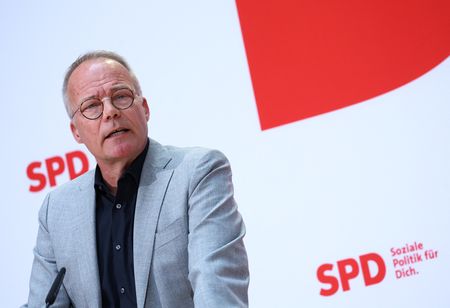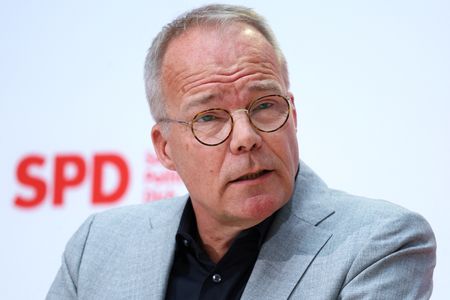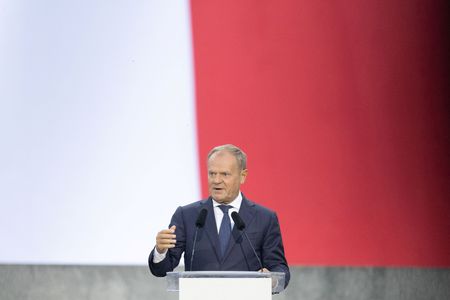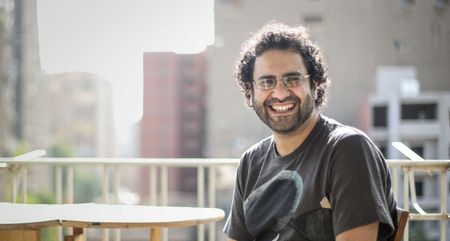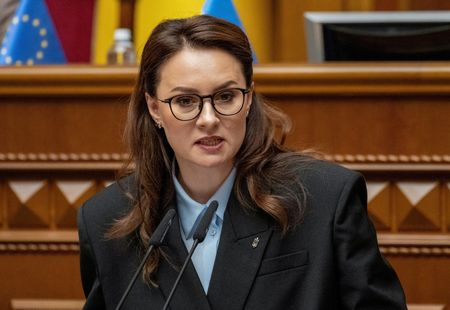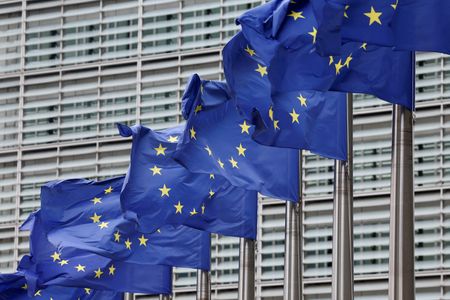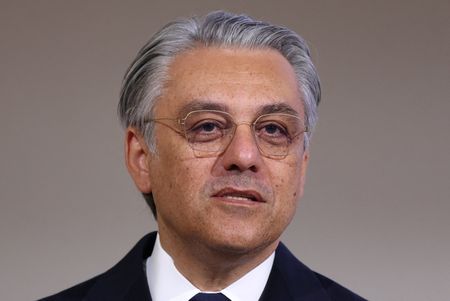By Markus Wacket and Riham Alkousaa
BERLIN (Reuters) -Germany’s Social Democrats (SPD) backed a coalition deal with the CDU/CSU conservatives on Wednesday in the final step to forming a government in Europe’s largest economy, and nominated their leader Lars Klingbeil as finance minister.
SPD support paves the way for election winner Friedrich Merz to become chancellor on May 6, after his conservatives topped federal elections in February but fell well short of a majority.
Both the SPD and conservatives rule out governing with the far-right Alternative for Germany which scored a historic second place.
Pressure to form a functioning government has taken on a new urgency at a time of a weak German economy, rising unemployment and global turbulence sparked by U.S. President Donald Trump’s sweeping import tariffs.
Over the last two weeks, SPD members have voted on the coalition treaty drawn up by leaders of both parties.
In the vote, which ended on Tuesday just before midnight, 84% of the members who took part were in favour of the deal, the party said, adding that 56% of the around 360,000 members took part in the vote.
“In these very difficult times in global politics, we bear responsibility for our security, for economic growth, secure jobs and equal opportunities,” party General Secretary Matthias Miersch said.
The party agreed to name its co-leader Klingbeil as the vice chancellor and finance minister, Miersch added later at a press conference at the party base in Berlin.
The party will name six other cabinet posts it is entitled to by May 5. Boris Pistorius, the popular defence minister in the outgoing government, is likely to retain his post. “I believe that we have now brought a process to an end that will culminate next week with the formation of a stable government in the Federal Republic of Germany,” Miersch said.
Reviving Europe’s largest economy is a top priority for Germany’s next government, especially given fears that a trade war sparked by Trump’s tariff announcements could further hurt its export-driven economy.
POLITICAL CENTRE ‘ASSUMES RESPONSIBILITY’
Merz welcomed the SPD’s vote in a social media post.
“The broad approval of our coalition agreement shows that the political center is capable of taking action and assuming responsibility. This clears the way for a strong government that will finally solve our country’s problems,” he said on X.
The first major task for 47-year-old Klingbeil would be to present a draft budget for 2025, which had been delayed due to the snap election in February.
Klingbeil is a well-known face in the SPD, the party of outgoing Chancellor Olaf Scholz, having been its co-leader for the last four years, together with Saskia Esken.
Known for his charismatic personality and strong communication skills, he is seen as a rising star within the SPD and a potential future chancellor.
Despite the SPD’s historic low of just 16.4% of the vote, political experts say it secured key gains in the coalition deal, leveraging the conservatives’ lack of alternative paths to the chancellery for the next four years.
The next coalition aims for example to invest heavily in Germany’s infrastructure, raise the minimum wage to 15 euros ($17.01) per hour, keep pensions level at 48% of the current average wage and extend a cap on rents, according to the coalition contract.
The SPD’s concessions on tighter migration rules and cuts to unemployment benefits as well as its failure to secure tax hikes for the wealthy have, however, drawn sharp criticism from the party’s influential Jusos youth wing, whose leaders had urged members to reject the deal.
($1 = 0.8819 euros)
(Additional reporting by Maria Martinez; Writing by Riham Alkousaa; Editing by Sarah Marsh, Sharon Singleton, Matthias Williams, Alexandra Hudson)

